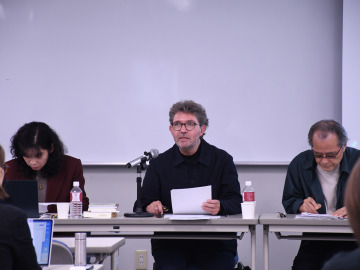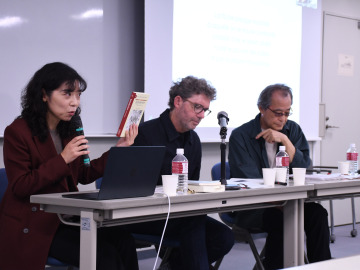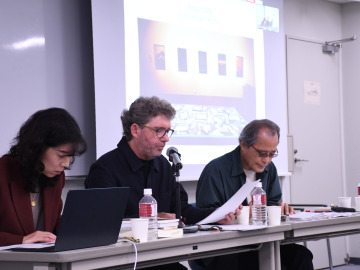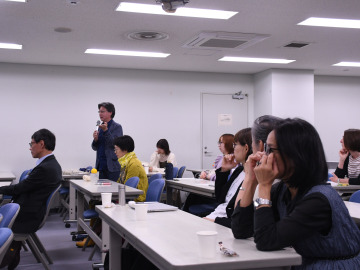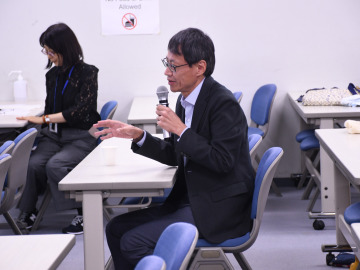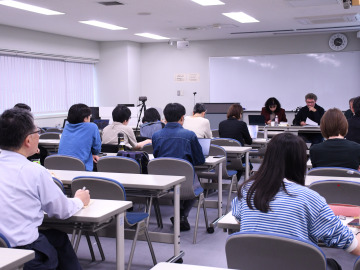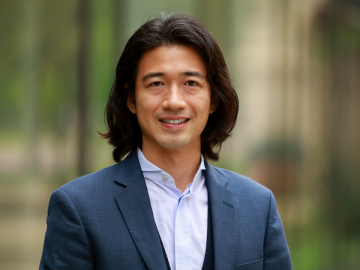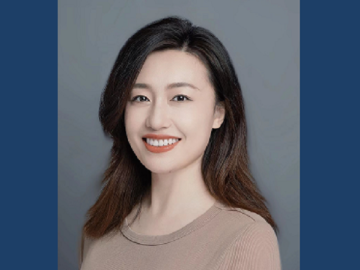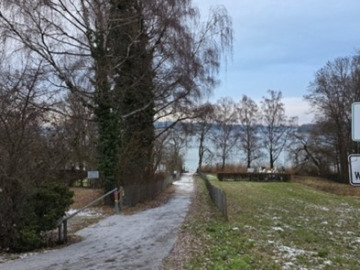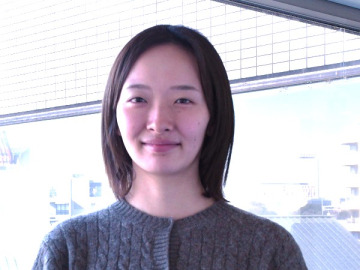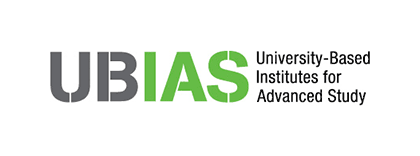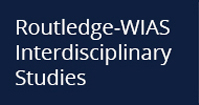Top runners’ lecture collections:【Lecture by Emmanuel Bouju】
In the Age of Epimodernism. A Princip Principle for Literature Today
On 11 October 2025, a lecture was delivered under the title In the Age of Epimodernism as part of the WIAS Top runners’ lecture collections. The speaker was Professor Emmanuel Bouju, who is Director of CERC (Centre d’Études et de Recherches Comparatistes) at Sorbonne Nouvelle University. The Japanese-French consecutive interpretation was provided by Professor Emeritus Nobutaka Miura of Chuo University. The role of the moderator was undertaken by Assistant Professor Risa Matsuo (WIAS – Waseda Institute for Advanced Study).
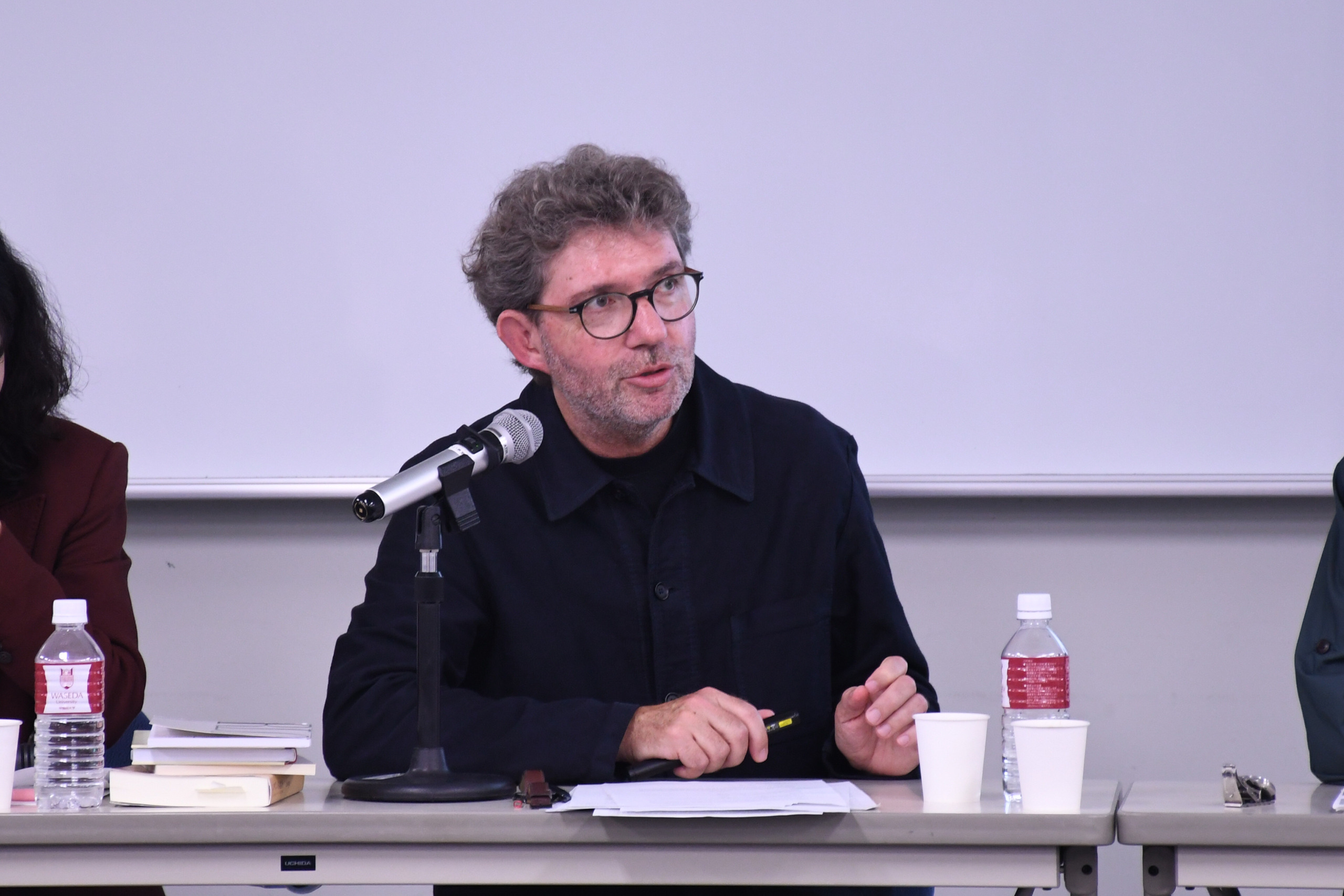
Emmanuel Bouju, a distinguished scholar specialising in the field of comparative literature in contemporary France, was a Visiting Researcher at WIAS from 26 September to 26 October 2025. During this period he dedicated himself to his research, collaborating with various researchers at Waseda University. He also presented a total of three lectures hosted by institutes within Waseda University. The lecture, which was organised by Risa Matsuo, focused on Epimodernism ([fr.] Épimodernisme), a theoretical possibility for literature after postmodernism recently proposed by Bouju. The monograph on this subject, which was originally published in French online in 2020, was subsequently released in English by Palgrave Macmillan in 2023 (see related links for both). In the initial segment of the lecture, Bouju presented the six foundational values in modern literature (derivative of the six meanings of the Greek prefix “epi” and reinterpreted from the six memos left by Italo Calvino (1923-85) from his Harvard lectures), as delineated in his book. In the latter half of the lecture, the speaker shared his latest analysis and insights based on these values: Princip Principle ([fr.] Principe Principe). Despite the fact that this term appears to be a French wordplay involving the repetition of the same word, it is, in actuality, a “serious joke” – a wordplay on the name of Gavrilo Princip, the assassin who shot the Archduke of Austria and his wife during the 1914 Sarajevo incident that led to the commencement of World War I. Since that point in history, spanning from the Yugoslav Wars to the invasion of Ukraine in 2025, instability in Central and Eastern Europe has endured perpetually, as if representing Princip’s “phantom pain” – the phenomenon where limbs lost in accidents continue to cause pain as if they were still present. Utilising examples from the novels of authors such as Velibor Čolić (1964- ), Jérôme Ferrari (1968- ) and David Albahari (1948-2023), Bouju posits that works pertaining to Princip continue to be produced incessantly to the present day, akin to a thought experiment serving as a “mirror box” (a therapeutic technique that employs the use of a mirror to visualise lost limbs, thereby alleviating pain).
Following the intermission, the session recommenced with commentary from the moderator Risa Matsuo based on Bouju’s analysis of the Princip Principle. This element of “phantom pain” has its origins in the 20th century, but it also existed in 19th-century Poland, as Matsuo’s research indicates. For instance, she cites Fryderyk Chopin’s scherzo, noting that while the word originally means “joke” in Italian, Chopin incorporated themes alluding to the serious situation of Poland having lost its nation at the time, sarcastically titling the piece “Scherzo (Joke)”. The situation characterised as a “serious joke” subsequently manifested as a “phantom pain” in contemporary Poland. At the time of this lecture, Russian drones were violating Polish airspace, thereby threatening the mental state of the Polish population. Concurrently, the 19th International Fryderyk Chopin Piano Competition was taking place in Warsaw. This event was established approximately a century ago to commemorate Poland’s regaining of independence following World War I. After posing the question to the audience of whether this competition would yield a performer capable of expressing the “phantom pain” since Chopin like a “mirror box”, thereby alleviating suffering, the moderator asked Bouju whether Epimodernism could be applied in this way to auditory and visual arts. The professor’s response was, Oui! (Yes!), stating that all artistic fields face the same issues as contemporary literature. He concluded, “I do not think Epimodernism will be enough to resist (the state of the world). However, if it can contribute even a little, that will be something.”
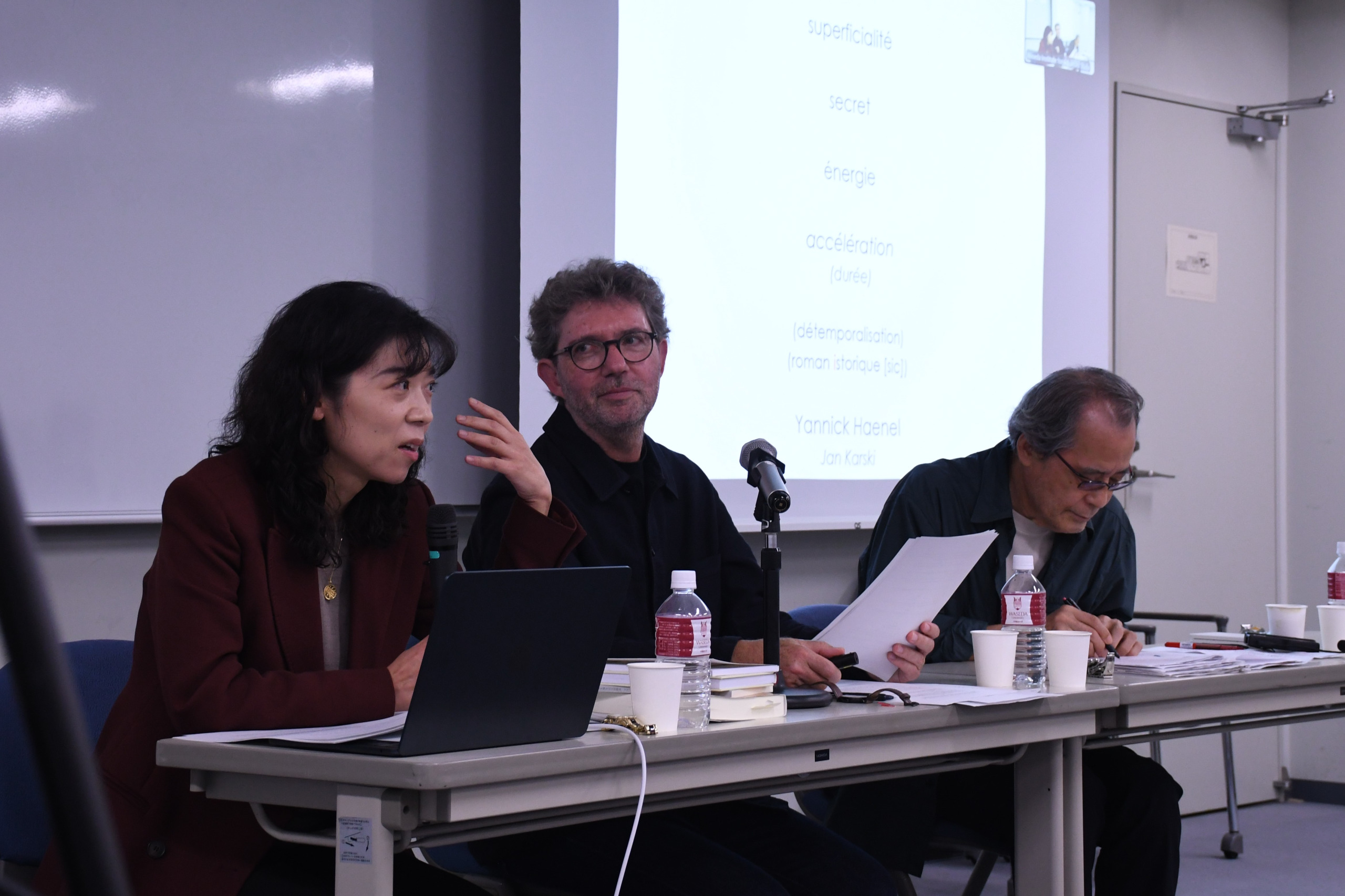
The event brought together a diverse cohort of early-career scholars, encompassing graduate students, research fellows, and undergraduates from both within and outside the Waseda University community. The lecture elicited a variety of interesting reactions from the audience, including the excitement of directly engaging with “living science” through witnessing the presentation of a recent theory by its proposing scholar, and the interest in applying Epimodernism to Japanese literature and arts. The greatest satisfaction for both the speaker and organiser was the effectiveness of the lecture in stimulating awareness among the next generation of the issues facing contemporary literature and arts.
Text: Risa Matsuo
(English proofreading: Alexander Stokes)
Related links:
Official Event Website
https://www.waseda.jp/inst/wias/news-en/2025/08/27/19990/
Épimodernes. Nouvelles « leçons américaines » sur l’actualité du roman (2020)
https://codicille.info/ouvrages_recents/epimodernes.html
Epimodernism: Six Memos for Literature Today (2023)
https://link.springer.com/book/10.1007/978-3-031-09924-3

